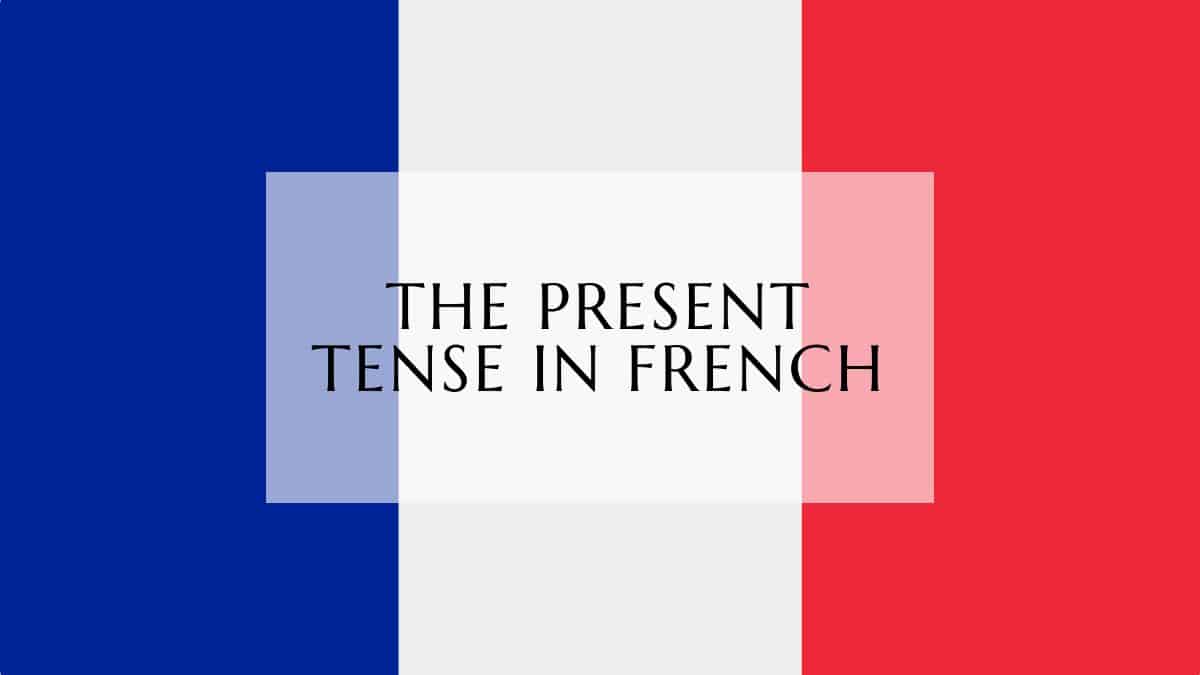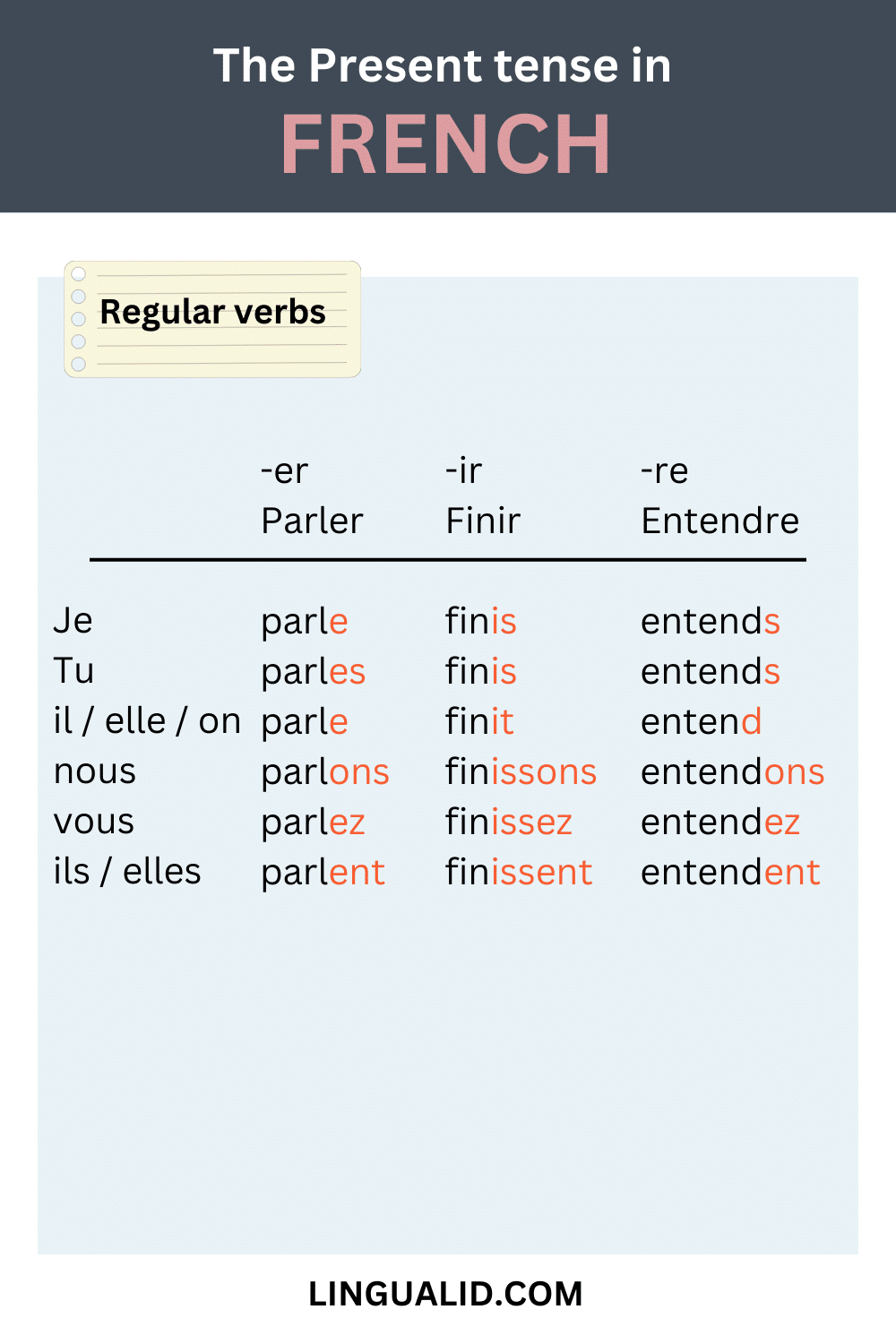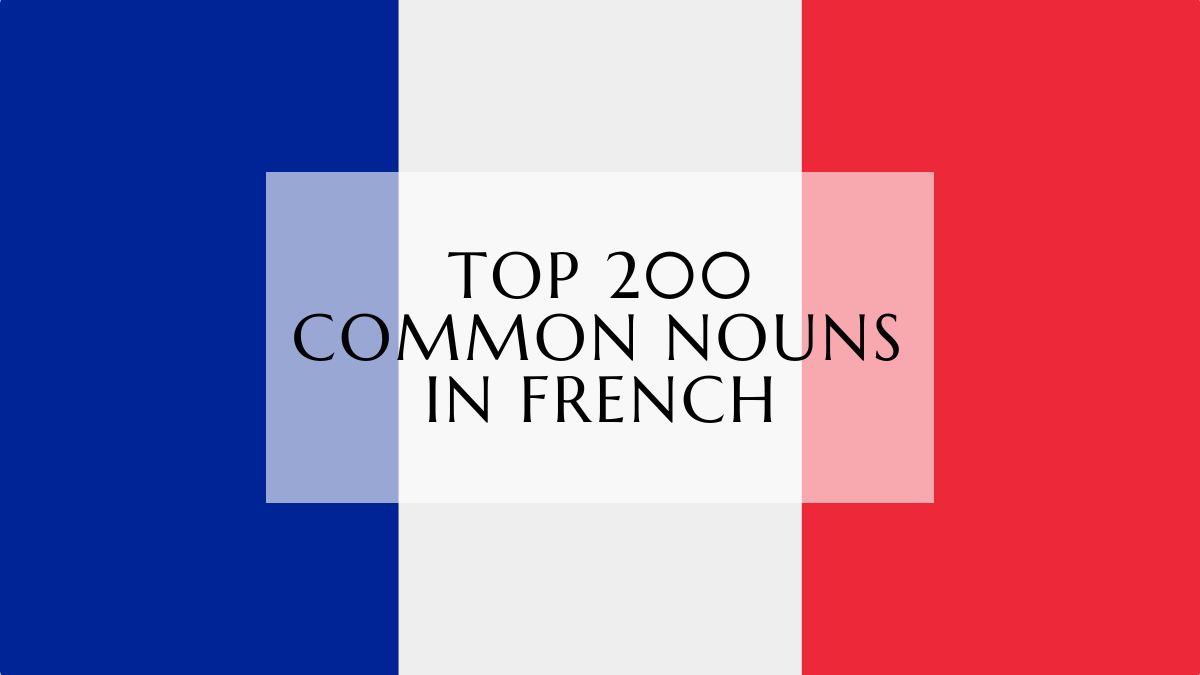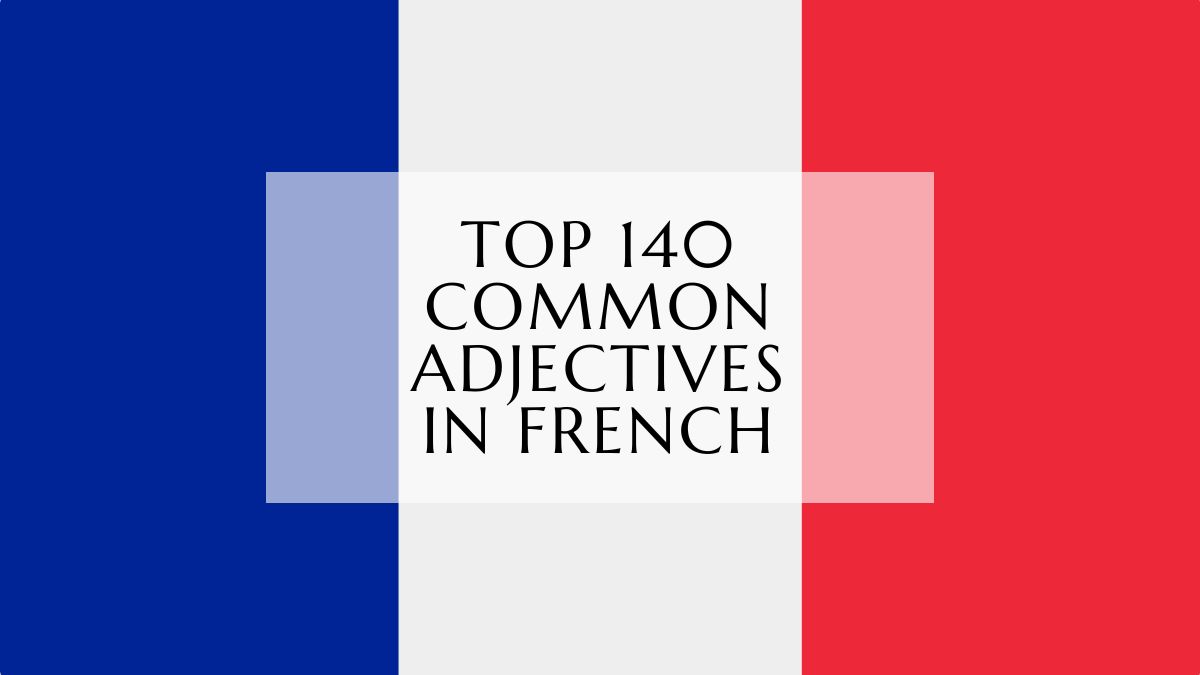The present tense in French is pretty straightforward as there is a simple form to apply to verbs to get the conjugation right, but bear in mind that in French there are three groups of regular verbs: -ER, -IR, and -RE which we will explain and give some examples.

Present Tense In French
Verbs in French have three endings: -er, -ir, -re, for regular verbs, the stem doesn’t change and we conjugate according to their endings, let’s start with verbs that end with -er.
Verbs that end with -er
| Je | -e |
| Tu | -es |
| il / elle / on | -e |
| nous | -ons |
| vous | -ez |
| ils / elles | -ent |
Example: manger (to eat)
| Je | mange |
| Tu | manges |
| il / elle / on | mange |
| nous | mangeons |
| vous | mangez |
| ils / elles | mangent |
Note: for nous, we added e to maintain the pronunciation.
Example: parler (to speak)
| Je | parle |
| Tu | parles |
| il / elle / on | parle |
| nous | parlons |
| vous | parlez |
| ils / elles | parlent |
Note: you can practice what you’ve learned here, and learn how to pronounce each of the words in our Memrise course here, don’t know how to use the platform or sign up? we’ve got you covered in this easy-to-follow tutorial here.
Verbs that end with -ir
| Je | -is |
| Tu | -is |
| il / elle / on | -it |
| nous | -issons |
| vous | -issez |
| ils / elles | -issent |
Example: finir (to finish)
| Je | finis |
| Tu | finis |
| il / elle / on | finit |
| nous | finissons |
| vous | finissez |
| ils / elles | finissent |
Example: choisir (to choose)
| Je | choisis |
| Tu | choisis |
| il / elle / on | choisit |
| nous | choisissons |
| vous | choisissez |
| ils / elles | choisissent |
Verbs that end with -re
| Je | -s |
| Tu | -s |
| il / elle / on | -d |
| nous | -ons |
| vous | -ez |
| ils / elles | -ent |
Example: répondre (to answer)
| Je | réponds |
| Tu | réponds |
| il / elle / on | répond |
| nous | répondons |
| vous | répondez |
| ils / elles | répondent |
Example: entendre (to hear)
| Je | entends |
| Tu | entends |
| il / elle / on | entend |
| nous | entendons |
| vous | entendez |
| ils / elles | entendent |
Note:
for all verbs that end with –er, the form for je, tu, il, elle, on, ils and elles are pronounced the same.
For all verbs that end with –ir and –re, the forms for je, tu, il, elle and on are pronounced the same.

Some irregular Verbs
Example: faire (to do)
| Je | fais |
| Tu | fais |
| il / elle / on | fait |
| nous | faisons |
| vous | faites |
| ils / elles | font |
For je, tu, il, elle, and on the verb is pronounced the same
Example: aller (to go)
| Je | vais |
| Tu | vas |
| il / elle / on | va |
| nous | allons |
| vous | allez |
| ils / elles | vont |
Example: prendre (take)
| Je | prends |
| Tu | prends |
| il / elle / on | prend |
| nous | prenons |
| vous | prenez |
| ils / elles | prennent |
For je, tu, il, elle, and on the verb is pronounced the same
French Present Tense Verb Conjugation Review
Quiz
Instructions: Answer the following questions in 2-3 sentences.
- What are the three verb endings for regular verbs in the French present tense?
- Conjugate the verb “parler” (to speak) in the present tense.
- What is the stem of the verb “finir” (to finish) and how does it change in the present tense?
- Conjugate the verb “choisir” (to choose) in the present tense.
- How do you form the present tense conjugation for verbs ending in “-re”? Provide an example.
- What is an irregular verb? Provide one example of an irregular French verb.
- Conjugate the irregular verb “aller” (to go) in the present tense.
- What distinction can be made regarding the pronunciation of present tense conjugations for “-er” verbs compared to “-ir” and “-re” verbs?
Answer Key
- The three verb endings for regular verbs in the French present tense are “-er,” “-ir,” and “-re.”
- Parler (to speak): Je parle, Tu parles, Il/Elle/On parle, Nous parlons, Vous parlez, Ils/Elles parlent.
- The stem of the verb “finir” is “fin.” The stem does not change in the present tense; only the ending changes according to the subject pronoun.
- Choisir (to choose): Je choisis, Tu choisis, Il/Elle/On choisit, Nous choisissons, Vous choisissez, Ils/Elles choisissent.
- To form the present tense conjugation for verbs ending in “-re,” you typically drop the “-re” and add the appropriate endings: -s, -s, -d, -ons, -ez, -ent. For example: Répondre (to answer): Je réponds, Tu réponds, Il/Elle/On répond, Nous répondons, Vous répondez, Ils/Elles répondent.
- An irregular verb does not follow the typical conjugation patterns. An example is the verb “faire” (to do).
- Aller (to go): Je vais, Tu vas, Il/Elle/On va, Nous allons, Vous allez, Ils/Elles vont.
- For “-er” verbs, the pronunciation of “je,” “tu,” “il/elle/on,” “ils/elles” are all the same. For “-ir” and “-re” verbs, only the pronunciation of “je,” “tu,” “il/elle/on” are the same.
Get a pdf file of this lesson and other 1000 essential French words now, write your email so we can send it to you:
Happy learning
Oualid Cheddadi is the founder of Lingualid, a platform that inspires independent language learners worldwide, regardless of the language they are learning. The name “Lingualid” is derived from the Portuguese word for “language,” “língua,” and the last three letters of Oualid’s name, “Lid.”



